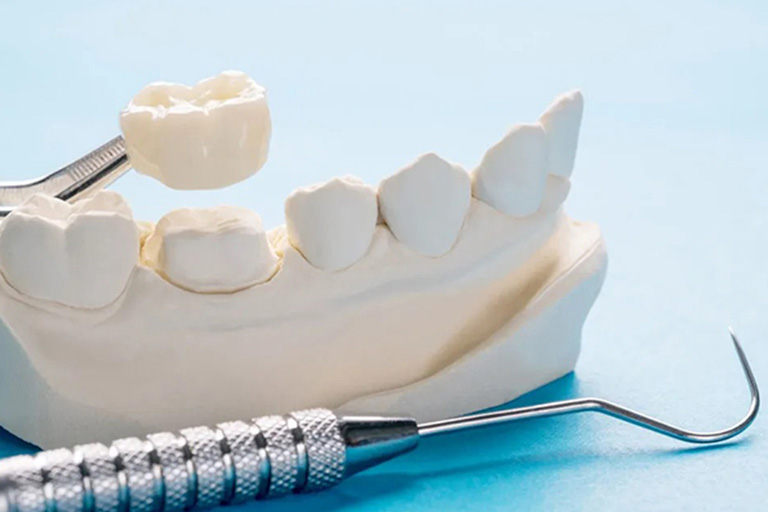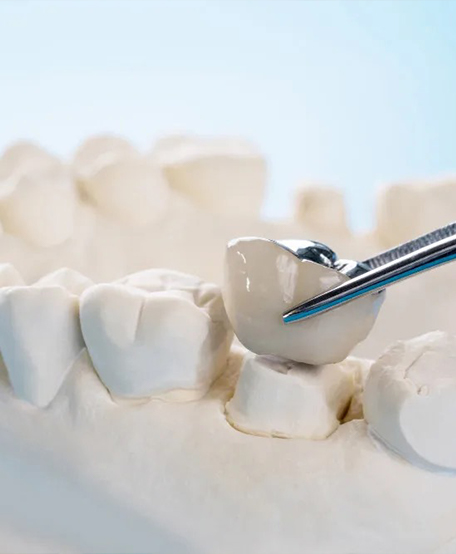Gum Disease Treatment
Gum Disease Treatment
At Fletcher Dental Care, we know that gum health is a critical part of your overall well-being. Gum disease, also known as periodontal disease, is a common condition that can lead to severe dental issues if left untreated. Our Gum Disease Treatment services aim to halt the progression of gum disease, restore gum health, and protect the integrity of your teeth and jawbone. We’re committed to providing compassionate and effective care, ensuring our patients can enjoy a healthy, confident smile.
Understanding Gum Disease
Gum disease is an inflammatory condition caused by bacterial plaque buildup along and under the gumline. It progresses in stages, starting as gingivitis, a mild form of gum disease characterised by gum redness, swelling, and bleeding. If gingivitis is left untreated, it can progress to periodontitis, where the infection extends deeper, potentially causing gum recession, bone loss, and eventually tooth loss.

Symptoms of Gum Disease
Recognising the early signs of gum disease is key to successful treatment. Common symptoms include:
- Red, swollen, or tender gums
- Bleeding gums during brushing or flossing
- Persistent bad breath
- Gum recession (gums pulling away from the teeth)
- Loose teeth or changes in bite alignment
- Pus between gums and teeth in advanced cases
If you’re experiencing any of these symptoms, prompt treatment is essential. At Fletcher Dental Care, our team is here to help you get your gum health back on track with customised treatment options.
Our Approach to Gum Disease Treatment
Effective gum disease treatment is tailored to each patient’s specific condition and stage of disease. Here’s what our comprehensive gum disease treatment includes:
- Comprehensive Periodontal Evaluation
We start with a thorough evaluation to assess the health of your gums. This includes checking the depth of periodontal pockets (the spaces between your gums and teeth where bacteria can thrive) and evaluating any signs of inflammation, infection, or bone loss. Digital X-rays may also be taken to get a detailed view of the underlying structures. - Scaling and Root Planning (Deep Cleaning)
For patients with early to moderate gum disease, we may recommend scaling and root planning. This procedure involves a deep cleaning that removes plaque and tartar buildup from above and below the gumline. The root surfaces are then smoothed (root planning) to discourage further plaque buildup and help the gums reattach to the teeth. Scaling and root planning is often effective at reversing gum disease in its earlier stages. - Antibiotic Therapy
To help control infection, antibiotic therapy may be used alongside scaling and root planning. Antibiotics can be applied directly to the periodontal pockets or prescribed in oral form to help reduce bacterial levels and inflammation. - Surgical Treatment for Advanced Gum Disease
In cases where gum disease has progressed to an advanced stage, surgical intervention may be necessary. Procedures like pocket reduction surgery can help reduce the depth of periodontal pockets, making it easier to keep the area clean. Gum grafts may also be used to restore receded gums, and bone grafting can help regenerate lost bone in severe cases. - Ongoing Periodontal Maintenance
After initial treatment, maintaining gum health is critical to preventing disease recurrence. We create a personalised maintenance plan, which typically involves more frequent cleanings, every 3 to 4 months, to keep the gumline free of harmful bacteria. During these visits, we’ll monitor your gums to ensure they remain healthy and stable.
Benefits of Gum Disease Treatment
- Prevention of Tooth Loss: Treating gum disease early helps protect against tooth loss, which is a common consequence of untreated periodontitis.
- Enhanced Oral Health: Gum disease treatment can alleviate pain, bleeding, and inflammation, improving your overall oral health and comfort.
Reduced Risk of - Systemic Health Issues: Studies have linked gum disease to serious health conditions like heart disease, diabetes, and stroke. Treating gum disease reduces these associated risks.
- Improved Appearance: By treating gum disease, we can reduce gum recession and prevent further damage, helping your smile look healthier and more vibrant.
Fletcher Dental Care’s Commitment to Quality Care
At Fletcher Dental Care, we understand the discomfort and anxiety that can come with gum disease. Our team is dedicated to providing gentle, effective treatment in a comfortable environment. We take the time to discuss all available options with you and tailor a treatment plan that meets your needs. Our approach to gum disease treatment combines advanced techniques with a compassionate touch, ensuring you feel supported every step of the way.

Frequently Asked Questions (FAQs)
Can gum disease be cured?
While gum disease can’t always be completely cured, especially in advanced cases, it can be effectively managed and controlled with professional treatment and good oral hygiene. Regular maintenance is essential to keep gum disease from returning.
Does gum disease treatment hurt?
We prioritise your comfort during all procedures. Local anaesthesia is used for treatments like scaling and root planning to minimise discomfort. Our team will also discuss pain management options to ensure you feel comfortable throughout the process.
How often do I need periodontal maintenance?
After gum disease treatment, we typically recommend periodontal maintenance cleanings every 3 to 4 months. This schedule allows us to closely monitor your gum health and prevent bacteria buildup that can lead to recurrence.
Can gum disease affect my overall health?
Yes, gum disease has been linked to systemic health conditions, including heart disease, diabetes, and respiratory issues. Keeping your gums healthy can positively impact your overall health.
What can I do at home to prevent gum disease?
Good oral hygiene is key to preventing gum disease. Brush twice daily, floss daily, and avoid tobacco use. Regular dental checkups and cleanings are also essential in keeping your gums healthy.
How do I know if I have gum disease?
Common signs of gum disease include red, swollen gums, bleeding while brushing or flossing, persistent bad breath, and gum recession. If you notice any of these symptoms, schedule a consultation at Fletcher Dental Care for an evaluation.
Book Your Appointment Today!
Let our caring team make your next visit effortless, and feel free to reach out with any questions or concerns—we’re here to support you every step of the way.
